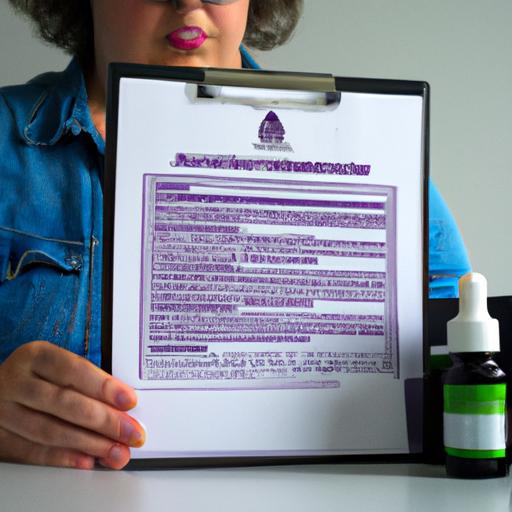As an online retailer, shipping essential oils requires careful consideration and planning. It’s important to ensure that these delicate products are shipped safely and securely to avoid damage or leakage during transit. In this article, I will guide you through the essential steps to take when shipping essential oils.
Firstly, choosing the right carrier and packaging materials is crucial. Essential oils are delicate and can easily break or leak if not handled correctly. It’s important to choose a carrier that has experience in shipping essential oils and has a good track record of safe and secure deliveries. Make sure to research carriers and read reviews to ensure that they are a reliable option for your business.
In addition to choosing the right carrier, it’s also important to use the right packaging materials. Essential oils should be packaged in leak-proof containers that can withstand the rigors of shipping. Glass bottles are a popular choice for essential oils as they are durable and do not react with the oils. Make sure to use proper padding and cushioning materials to ensure that the bottles do not break or shift during transit.
In summary, shipping essential oils safely and securely is crucial for online retailers. Choosing the right carrier and packaging materials will help ensure that the products arrive at their destination in good condition. In the following sections, we will explore the regulations and restrictions for essential oil shipping, how to properly label and package essential oils, and the importance of insurance and liability coverage.
Regulations and Restrictions

When it comes to shipping essential oils, it’s important to understand the regulations and restrictions that apply. These regulations are in place to protect both the shipper and the receiver and ensure that the oils are shipped safely and securely.
Importance of understanding regulations and restrictions in the shipping of essential oils
Familiarizing yourself with the regulations and restrictions for essential oil shipping can help you avoid costly fines and legal issues. It can also help you ensure that your products are shipped safely and securely, minimizing the risk of damage or leakage during transit.
Overview of common restrictions and regulations for essential oil shipping
Some common restrictions and regulations for essential oil shipping include restrictions on the quantities that can be shipped, labeling requirements, and carrier restrictions. For example, some carriers may not allow certain types of essential oils to be shipped, or may require that they be shipped using specific packaging materials. It’s important to research and understand these regulations to ensure that your products are shipped legally and safely.
Tips on how to comply with regulations and restrictions
To comply with regulations and restrictions for essential oil shipping, make sure to properly label your products, use the right packaging materials, and choose a carrier that has experience in shipping essential oils. It’s also important to research and understand the regulations that apply to your specific products and shipping destination. By following these tips, you can ensure that your products are shipped legally and safely.
In the following sections, we will explore how to choose the right carrier for essential oil shipping, tips on packaging and labeling, and the importance of insurance and liability coverage.
Choosing the Right Carrier

When it comes to shipping essential oils, choosing the right carrier can make a significant difference in the safe and secure delivery of your products. Here are some factors to consider when choosing a carrier for essential oil shipping:
Factors to Consider
- Experience: Look for carriers that have experience in shipping essential oils and have a good track record of safe and secure deliveries.
- Speed: Consider the speed of delivery and the carrier’s ability to meet your business needs.
- Cost: Look for carriers that offer competitive pricing and factor in any additional fees or surcharges.
- Customer service: Consider the carrier’s customer service and their ability to handle any issues or concerns that may arise during shipping.
- Insurance: Look for carriers that offer insurance for your shipments to protect against loss or damage.
Popular Carriers and Their Pros and Cons
There are several carriers to consider when shipping essential oils. Here is an overview of some popular options and their pros and cons:
UPS
- Pros: Offers a range of shipping options, including expedited delivery. Has a good track record for safe deliveries.
- Cons: Can be more expensive than other carriers and may have additional fees.
FedEx
- Pros: Offers a range of shipping options, including overnight delivery. Has a good track record for safe deliveries.
- Cons: Can be more expensive than other carriers and may have additional fees.
USPS
- Pros: Offers affordable shipping options and has a large network of delivery locations.
- Cons: May have longer delivery times and may not offer insurance for essential oils.
Tips for Choosing the Right Carrier
- Research carriers and read reviews to ensure that they are a reliable option for your business.
- Consider the factors mentioned above and weigh the pros and cons of each carrier.
- Don’t be afraid to negotiate pricing or ask for discounts based on your shipping volume.
- Regularly review your carrier options to ensure that you are getting the best service and pricing for your business needs.
In summary, choosing the right carrier for essential oil shipping is crucial for safe and secure deliveries. Consider the factors mentioned above and weigh the pros and cons of each carrier to make an informed decision for your business.
Packaging and Labeling

Importance of Proper Packaging and Labeling for Essential Oils
Proper packaging and labeling of essential oils are crucial for safe and secure shipping. Not only does it protect the oils from damage during transit, but it also ensures that the oils are handled appropriately by carriers and customs officials.
When packaging essential oils, it’s important to use leak-proof containers that can withstand the rigors of shipping. Glass bottles are a popular choice for essential oils, as they are durable and do not react with the oils. Make sure to use proper padding and cushioning materials to prevent the bottles from breaking or shifting during transit.
Overview of Recommended Packaging Materials and Techniques
In addition to using leak-proof containers, there are several other packaging materials and techniques that can help ensure the safe shipping of essential oils. Here are some recommendations:
- Use bubble wrap or foam inserts to cushion the bottles
- Place the bottles in a box with dividers to prevent them from moving around during transit
- Use tamper-evident seals to ensure that the oils have not been tampered with during shipping
- Label the boxes with “Fragile” and “This Side Up” stickers to indicate that they contain delicate items
Tips on How to Properly Label Essential Oils for Shipping
Proper labeling of essential oils is also important for safe shipping. The labeling should include the following information:
- The common name and botanical name of the oil
- The net quantity of the oil
- The country of origin
- The method of extraction
- The recommended use and any precautions or warnings
Make sure to also follow any labeling requirements or regulations for the country you are shipping to. By properly labeling essential oils, you can help ensure that they are handled appropriately during transit and arrive at their destination safely.
Insurance and Liability
When shipping essential oils, it’s essential to have insurance and liability coverage to protect your business from potential losses. Accidents or damages can happen during transit, and having proper coverage can help mitigate the financial impact on your business.
Importance of having insurance and liability coverage for essential oil shipments
Without proper insurance and liability coverage, your business may be responsible for any damages or losses that occur during shipping. This can result in significant financial losses and damage to your business’s reputation. Having the right coverage can give you peace of mind and protect your business from potential risks.
Overview of common insurance and liability policies for businesses
There are several types of insurance and liability policies that businesses can purchase to protect themselves when shipping essential oils. Some common policies include:
- General Liability Insurance: This policy provides coverage for accidents or damages that occur during shipping, such as spills, leaks, or breakage.
- Cargo Insurance: This policy is specifically designed for businesses that ship goods, and it provides coverage for lost or damaged goods during transit.
- Errors and Omissions Insurance: This policy covers claims of negligence or mistakes made by your business during the shipping process.
It’s important to research and compare policies from different providers to find the right coverage for your business.
Tips on how to choose the right insurance and liability coverage for your business
When choosing insurance and liability coverage, consider the following factors:
- The value of your shipments: Make sure that your coverage is adequate to protect the full value of your shipments.
- The type of essential oils you are shipping: Some carriers may have restrictions on certain types of essential oils, so make sure that your coverage is appropriate for the oils you are shipping.
- The carrier you are using: Some carriers may provide their own insurance or liability coverage, so make sure to research their policies before purchasing additional coverage.
In conclusion, having proper insurance and liability coverage is crucial for online retailers shipping essential oils. Make sure to do your research and choose the right coverage to protect your business from potential risks.
Conclusion
In conclusion, shipping essential oils is a crucial component of any online retail business. It is important to take the necessary steps to ensure that your essential oils are shipped safely and securely to avoid damage or leakage during transit.
To recap, choosing the right carrier and packaging materials is key. Make sure to research carriers and read reviews to ensure that they are reliable and have experience in shipping essential oils. Use leak-proof containers and proper padding materials to ensure that the bottles do not break or shift during transit.
It is also important to comply with regulations and restrictions for essential oil shipping. Proper labeling and insurance coverage can help mitigate the risk of damage or loss during transit.
By following these essential steps, you can ensure that your essential oils arrive safely and securely at their destination. As an online retailer, your reputation is on the line with each shipment you send out. Taking the time to properly package and ship your essential oils will help ensure that your customers are satisfied and your business continues to thrive.
